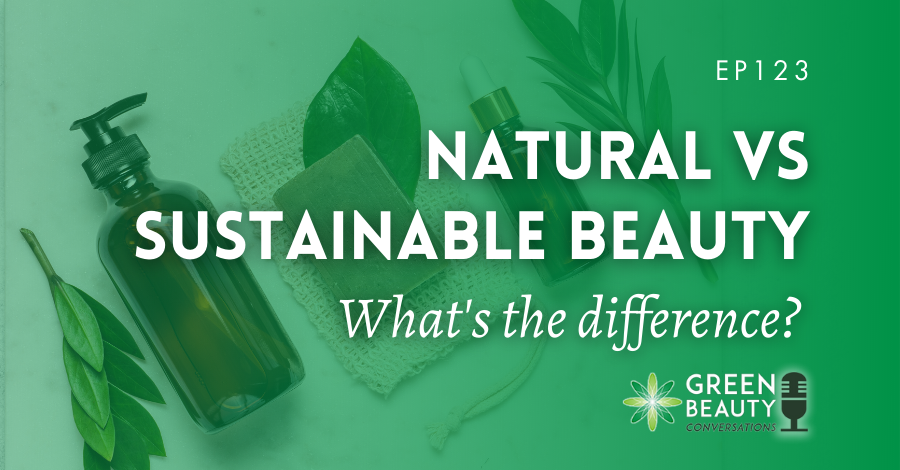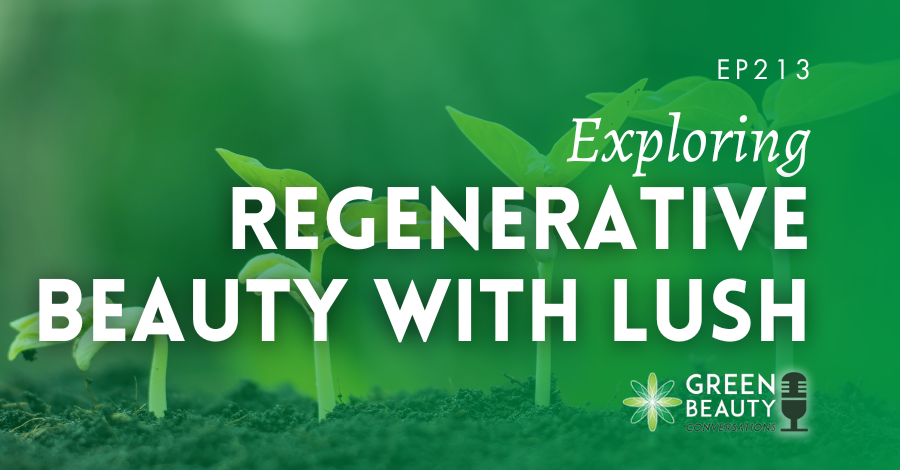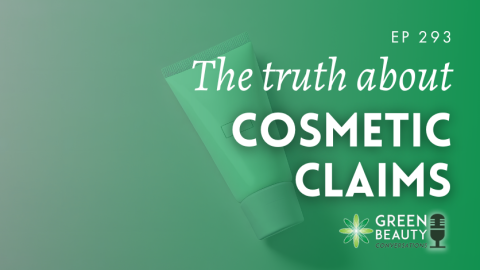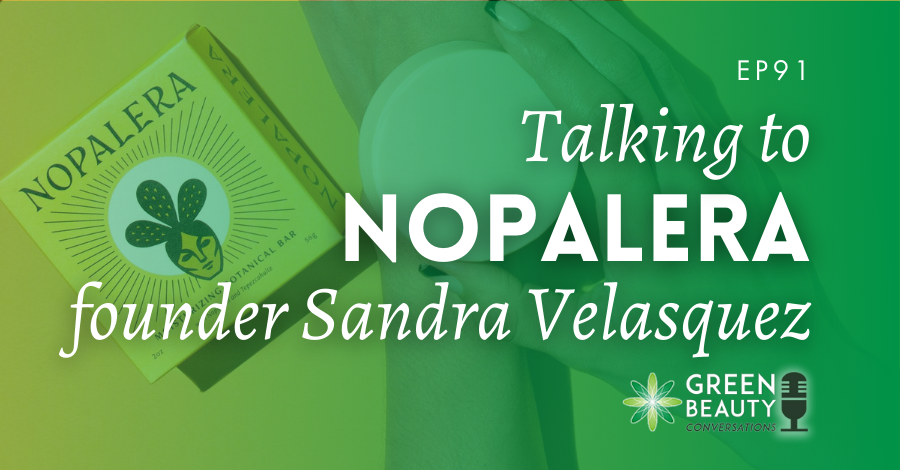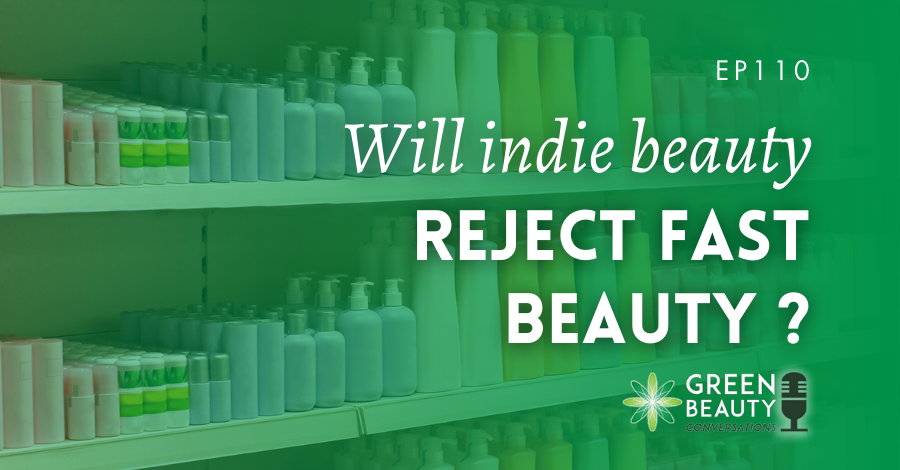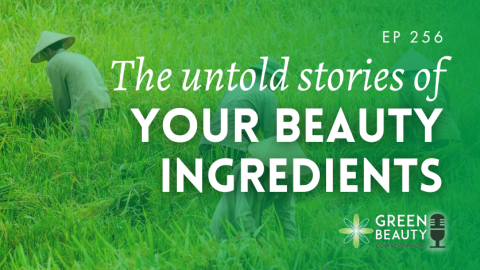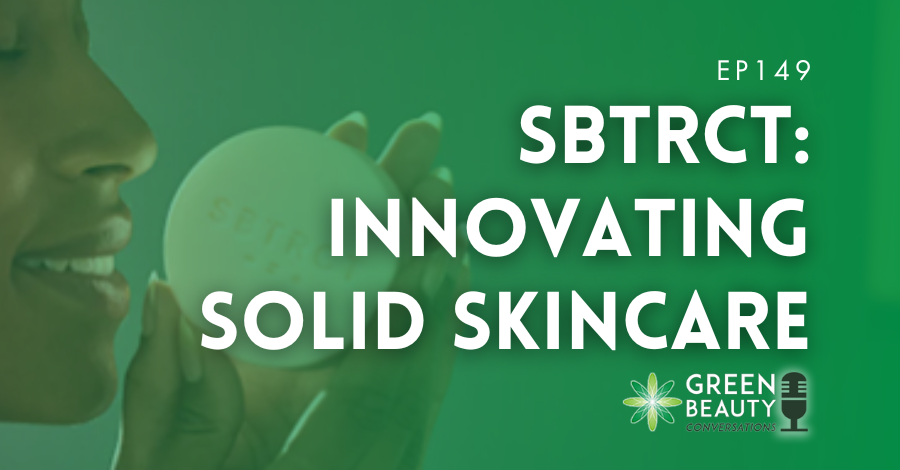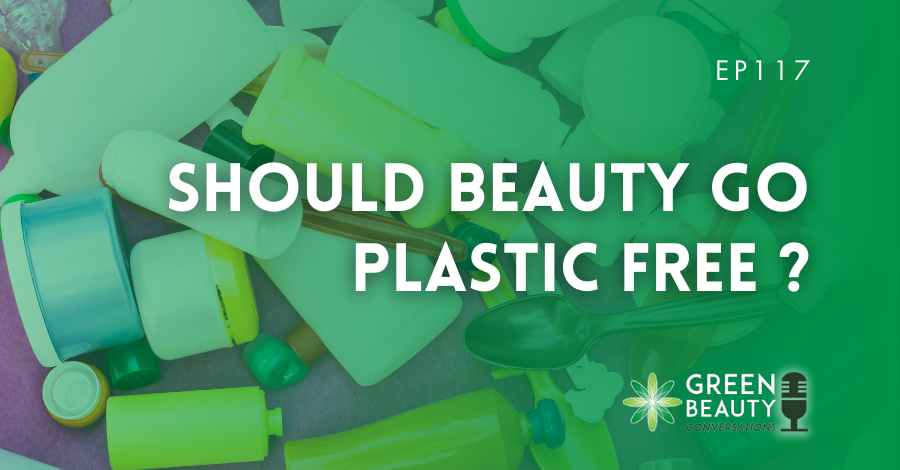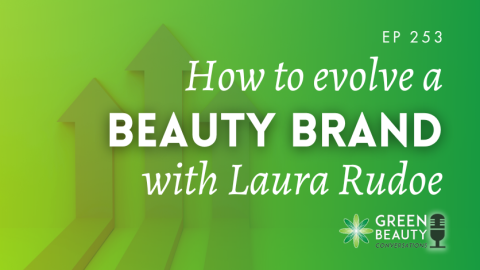Natural, sustainable beauty is a phrase used liberally in the beauty industry. Today, we are used to beauty brands, mainstream and indie, touting the naturalness of their formulations and their sustainability credentials. But can we be critical of their products, actions and words if we are in the dark about what these terms mean? Do the brands themselves truly know what they are committing to when using these words?
Formula Botanica CEO and podcast host Lorraine Dallmeier and colleague Ana Green, the School’s Education Manager, devote an entire episode to the use of these words in the beauty sphere. Listen in to make sense of natural and sustainable beauty and as a result, feel empowered as beauty formulators, brand founders and consumers to demand clarity from anyone in the beauty industry throwing them into their own conversations.
A poll we conducted in the Formula Botanica Skincare Entrepreneur Mastermind Facebook group showed that some 83% of our community rightly do not consider natural formulation as always sustainable. Beauty consumers may be far less clear about where the differences lie between natural and sustainable than insiders.
Among the many beauty industry terms we have covered on Green Beauty Conversations, natural and sustainable still stand out as being particularly misused despite their familiarity. They are interchanged in error, misunderstood at best or harnessed to mask green-washing at worst.
The terms seem so deceptively simple that it is entirely possible to not think through the complexities that underpin them. This episode explores natural and sustainable and helps you decide on your own interpretation of them.
In this episode on natural vs sustainable beauty, you will hear how:
- Natural and sustainable, along with other terms like green and clean, are used liberally on beauty brand websites and in their marketing, but scratch the surface of these claims and you often find no evidence to substantiate them.
- Natural means derived from plant, animal or mineral sources, but as we discuss in our 4 shades of natural podcast, a natural ingredient is likely to have undergone some processing to be suitable for safe cosmetic formulation. There is no single, accepted, industry definition of natural. These nuances do not help consumers understand with clarity when a brand is using the term honestly, erroneously or to greenwash.
- The beauty industry is one of the world’s most unsustainable industries, given its heavy use of natural resources and creation of waste. Any beauty brand saying it or its products are sustainable must show evidence that it operates to meet sustainable consumer demands without compromising the ability of future generations to meet their own needs.
- Big brands that advocate against the ‘take, make, dispose’ model, and demonstrate truly sustainable practices of degrowth, to encourage less consumption, and of the circular economy in action in their operations, are among the few. Sustainable practices are however being pioneered successfully by smaller, indie beauty brands that have found ways to operate sustainably serving local customers.
Key takeouts include
- As natural was circulating as a term well before sustainable became the norm to use in the beauty industry, there was an automatic assumption that natural embraced the concept of sustainability.
- With beauty consumers, influencers and media clamouring for greater sustainability from the brands they love, there is a rush to tick boxes. We see brands skim over the real responsibilities, financial investment, time and necessary certification that are required to commit to putting sustainability into action.
- There are enormous complexities in assessing, for example, the sustainability of even a single ingredient let alone a whole beauty entity. From supply chains to the impact a monoculture crop has on the environment and the damage boycotting an ingredient would have on indigenous communities farming it, assessing and providing evidence of sustainability in beauty is fraught with problems and grey areas, and can be costly.
- Certification is one key route to establishing the legitimate foundations of a brand’s claims to natural and sustainable practices. Organic Certification itself encompasses numerous sustainability criteria on the farming, processing, manufacture and supply of a beauty product. See our podcast with Pai Skincare founder Sarah Brown who explains why she chose Soil Association Organic Certification over all others in Pai’s mission to be a more sustainable brand.
Thank you for joining us for this episode of the Formula Botanica Green Beauty Conversations podcast. If you enjoyed listening, please share, subscribe and review this episode on Apple Podcasts, Spotify or Youtube so that more people can enjoy the show. Don’t forget to follow and connect with us on Facebook and Instagram.
FREE TRAINING
Learn how to become an
Organic Skincare Formulator
FREE TRAINING
How to become an
Organic Skincare Entrepreneur
FREE TRAINING
How to become an
Organic Skincare Entrepreneur
Leave us a comment
Lorraine Dallmeier is a Biologist, Chartered Environmentalist and the CEO of Formula Botanica, the award-winning online organic cosmetic science school. Read more about Lorraine and the Formula Botanica Team.

